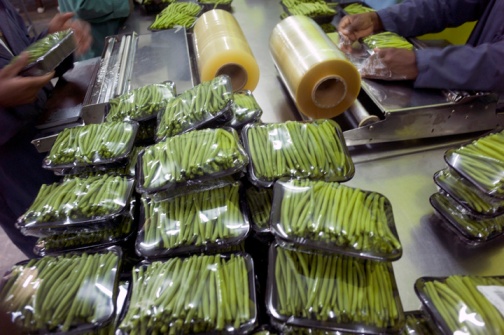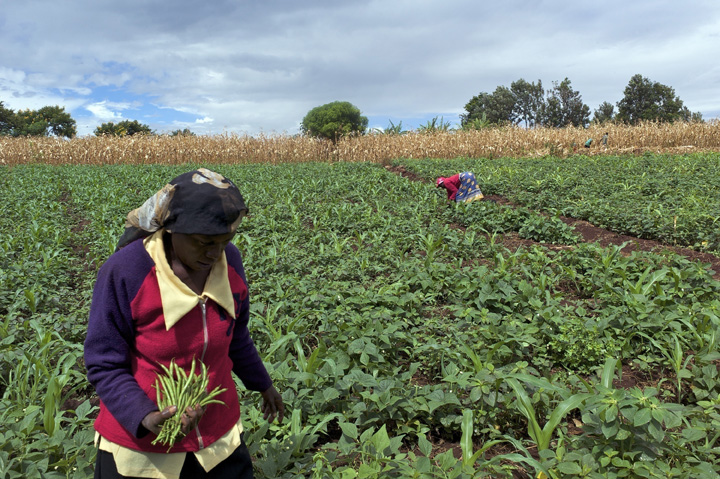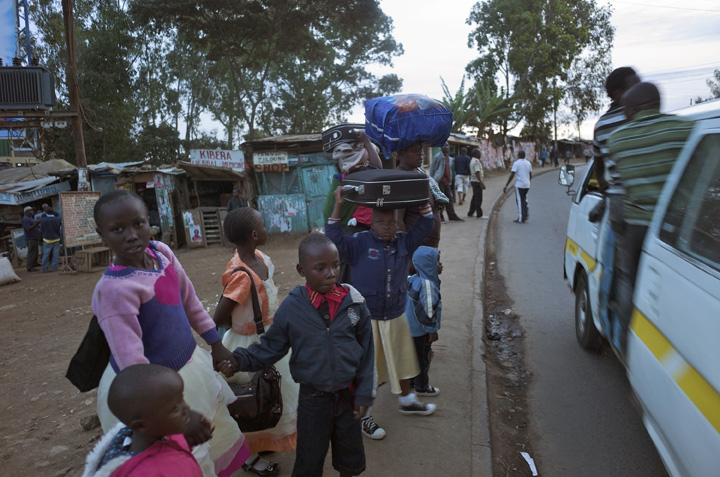The landscape of a farm, just outside the Kenyan capital of Nairobi, is occupied by half a dozen women harvesting French beans for European Union (EU) supermarkets. After collection the women will pre-grade the beans, discarding 10 to 20-percent because of standards set by EU supermarkets. Thereafter a pack-house (where the beans are cut and packaged for shipment), for one of the top exporting horticultural companies in Kenya, will examine and discard another 15 to 35-percent. This practice has contributed to claims that European Union supermarkets are to blame for food waste in Kenya.
According to an executive with a Kenyan horticultural company, who insisted neither he nor his pack-house be identified because of possible repercussions from EU companies, “we waste on average between 15 to 35-percent of our crops because of the high specifications set for appearance (size, shape and color) by EU supermarkets.” He went on to explain, “if you took all the vegetable and fruit exporters in Kenya and collected all the produce we’re forced to discard because of EU standards, we could feed all of Kenya’s poor and hungry. One hundred percent of our French bean crop is produced for their market. It’s not a Kenyan food. We’re trying to get our people to eat it but the local market will only take small quantities. If the EU would lower its specifications the food we grow would be of greater value, and we could then invest more into feeding Kenyans.” Unfortunately donating the rejected produce isn’t practical for farmers because of transportation and storage costs; it’s used as feed for pigs and cows.
According to the Kenyan government, 30-percent of Kenyan children are undernourished and 10 million people suffer from food shortages and poor nutrition. Wasted food also represents a major loss of water, energy, fertilizers and land.
At the pack-house, which received delivery from the farm described at the beginning, approximately a third of each French bean is cut off before being packed in small packets; the beans have a slight curve and packets for EU supermarkets are short and straight.
In February the United Nations Environment Programme (UNEP) held a three-course meal, in Nairobi, to highlight a campaign to cut massive levels of global food waste. Hundreds of ministers, diplomats and other high-level officials dined on food grown by Kenyan farmers but rejected by United Kingdom supermarkets due to cosmetic imperfections. It was done in support of the global Think.Eat.Save.Reduce Your Foodprint – an initiative launched in January by UNEP, the Food and Agriculture Organization (FAO) and partners such as Feeding the 5,000.
Food waste is a global issue. A UN study indicates that globally one-third of all food produced, 1.3 billion tonnes, is wasted or lost annually, while 925 million people around the world are threatened by starvation.
“Post harvest is the problem in the world, not production,” said the Kenyan executive who refused to be identified. “We can be so much more efficient with feeding people with what we already produce.”















